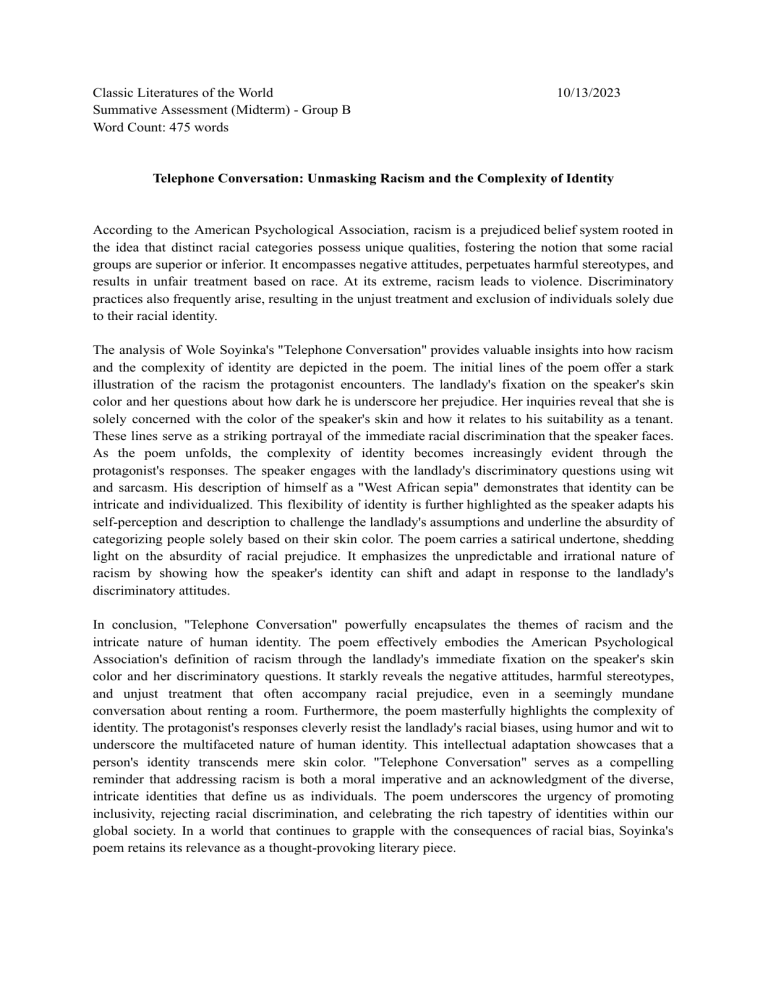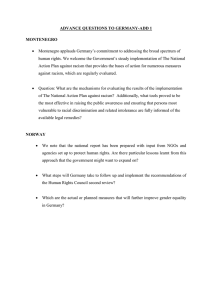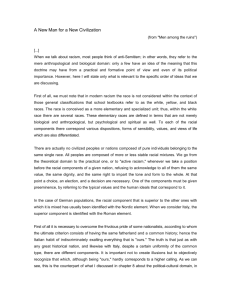
Classic Literatures of the World Summative Assessment (Midterm) - Group B Word Count: 475 words 10/13/2023 Telephone Conversation: Unmasking Racism and the Complexity of Identity According to the American Psychological Association, racism is a prejudiced belief system rooted in the idea that distinct racial categories possess unique qualities, fostering the notion that some racial groups are superior or inferior. It encompasses negative attitudes, perpetuates harmful stereotypes, and results in unfair treatment based on race. At its extreme, racism leads to violence. Discriminatory practices also frequently arise, resulting in the unjust treatment and exclusion of individuals solely due to their racial identity. The analysis of Wole Soyinka's "Telephone Conversation" provides valuable insights into how racism and the complexity of identity are depicted in the poem. The initial lines of the poem offer a stark illustration of the racism the protagonist encounters. The landlady's fixation on the speaker's skin color and her questions about how dark he is underscore her prejudice. Her inquiries reveal that she is solely concerned with the color of the speaker's skin and how it relates to his suitability as a tenant. These lines serve as a striking portrayal of the immediate racial discrimination that the speaker faces. As the poem unfolds, the complexity of identity becomes increasingly evident through the protagonist's responses. The speaker engages with the landlady's discriminatory questions using wit and sarcasm. His description of himself as a "West African sepia" demonstrates that identity can be intricate and individualized. This flexibility of identity is further highlighted as the speaker adapts his self-perception and description to challenge the landlady's assumptions and underline the absurdity of categorizing people solely based on their skin color. The poem carries a satirical undertone, shedding light on the absurdity of racial prejudice. It emphasizes the unpredictable and irrational nature of racism by showing how the speaker's identity can shift and adapt in response to the landlady's discriminatory attitudes. In conclusion, "Telephone Conversation" powerfully encapsulates the themes of racism and the intricate nature of human identity. The poem effectively embodies the American Psychological Association's definition of racism through the landlady's immediate fixation on the speaker's skin color and her discriminatory questions. It starkly reveals the negative attitudes, harmful stereotypes, and unjust treatment that often accompany racial prejudice, even in a seemingly mundane conversation about renting a room. Furthermore, the poem masterfully highlights the complexity of identity. The protagonist's responses cleverly resist the landlady's racial biases, using humor and wit to underscore the multifaceted nature of human identity. This intellectual adaptation showcases that a person's identity transcends mere skin color. "Telephone Conversation" serves as a compelling reminder that addressing racism is both a moral imperative and an acknowledgment of the diverse, intricate identities that define us as individuals. The poem underscores the urgency of promoting inclusivity, rejecting racial discrimination, and celebrating the rich tapestry of identities within our global society. In a world that continues to grapple with the consequences of racial bias, Soyinka's poem retains its relevance as a thought-provoking literary piece. REFERENCE/S: For Students. (n.d.). https://www.booksfree.org/wp-content/uploads/2022/03/poetry-for-studentsvolume-27_booksfree.org_.pdf#page=269 Racism, bias, and discrimination. https://www.apa.org/topics/racism-bias-discrimination\ (n.d.). https://www.apa.org.


